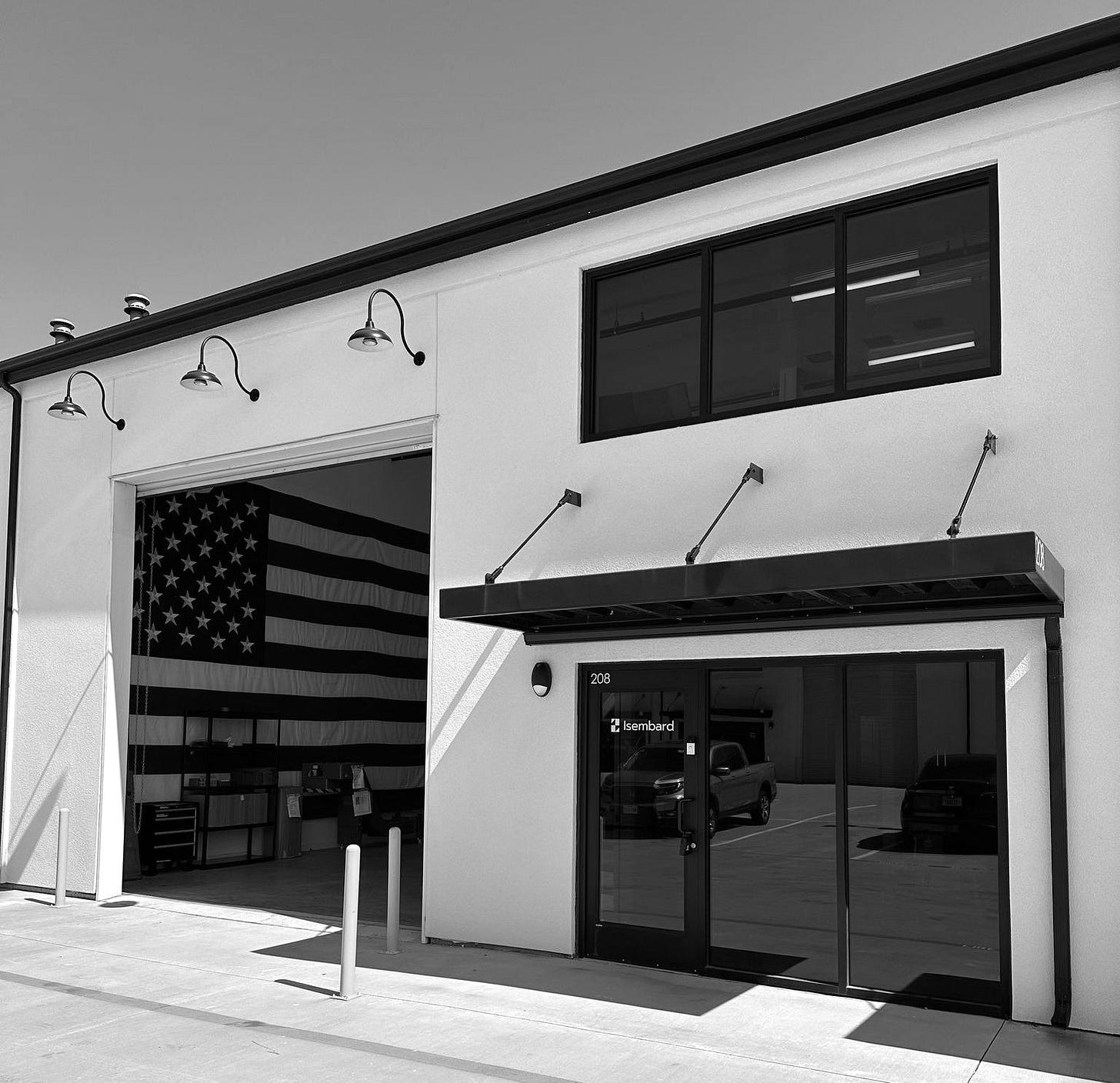British manufacturing startup Isembard opens first US factory in Texas
As military spending increases, the Lone Star State is a growing powerhouse for defence manufacturing – and for startups to set up hoping to break into the US market
Isembard, a British startup manufacturing parts for critical industries including defence, has opened its first US factory near Dallas, Texas.
The location is strategic: Texas is a major centre for US defense manufacturing, leading the country in annual spend at $71.6 billion, per the most recent (2024) report from the Department of Defense. Primes such as Lockheed Martin, RTX and General Dynamics all have factories in the state and lead the pack by huge margins. But with military spending overall in the US rising to nearly $1 trillion in 2024, those and other companies are looking to diversify their supply chains. That is where startups like Isembard fit in, with its plant also set up to cater to US-based clients in aerospace, energy and advanced hardware.
The factory in Texas mirrors the one that Isembard opened in the UK last February — with similar machines and running its proprietary operating system, MasonOS – but with one key difference, said Isembard founder and CEO Alexander Fitzgerald: there is a big US flag hanging in the background instead of a Union Jack.
In addition to defence, Texas is home to manufacturing for adjacent sectors such as civilian aerospace, oil & gas and maritime (see Saronic in Dallas) – all sectors Isembard targets.
In the Dallas suburbs, Isembard will be close to companies like Firehawk Aerospace and to the Dallas Fort Worth airport, although Austin – home to the Army Futures Command and many tech companies – may have been a more obvious pick.
'We just made the decision [based] on where we found the best general manager,' Fitzgerald told Resilience Media in an interview.
That GM is Justin Baucum, who had previously worked in operations and marketing at Amazon and other firms, and before that was in the U.S. Army Special Forces, aka the Green Berets. When looking for his next move, Baucum hadn’t initially considered manufacturing, but talking to Fitzgerald resonated with him.
'I just realised this is something that's really important to solve, because we're seeing a decline of our ability to produce things in the real world,’ he said in an interview.
These capacities still exist in Asia, but Isembard’s focus is on maintaining them in Western countries. 'It's part of something that I think is really important to our prosperity as a country, and then solving something that's going to continue to get more and more challenging,’ Baucum said.
Isembard is far from being the only one from having identified that gap: this is the same premise followed by, for example, Hadrian, which recently raised $260 million to build what it says will be autonomous factories to manufacture parts for the defense and adjacent industries.
Baucum is now tasked with building Isembard’s supply chain with local material suppliers. 'We've worked with two so far, and then we'll just continue to expand as we have demand for different material types,’ he said.
The factory is expected to ship beyond Texas, but Isembard also has plans to build further operations in other regions.
'We're building a network of small- to medium-sized factories […] across the UK, Europe and US', Fitzgerald said. These will range from 2,000 to 10,000 square feet, he added. 'That's how we think you can actually accelerate production much faster than the traditional way.'
This conviction on being more fleet-of-foot is one way that Isembard sets itself apart from Hadrian. The latter currently operates a 100,000-square-foot factory in Torrance, CA, and it said last week it would use its funding to build a second 'large-scale production facility and software hub spanning approximately 270,000 square feet' in Mesa, Arizona.
Isembard’s roadmap, for now, would not require that level of VC funding. The startup recently raised a £7 million equity seed round (approximately $9 million) led by Notion Capital, itself backed by the UK Government’s National Security Strategic Investment Fund (NSSIF) and the German Federal Government. Other funds 201 Ventures, Basis Capital, Forward Fund, Material Ventures, Neverlift Ventures and NP-Hard Ventures also participated — as well as angels including Andreas Klinger, Charlie Delingpole, Joshua Western and Salar al Khafaji.
According to the startup, this investment money only goes into growing its go-to-market engine and building out its technology stack. The new factory was funded with debt, and Fitzgerald described it as ‘already profitable.’
The CEO credited the operating system it has developed, MasonOS, for driving its unit economics.
'It's how we get 10 times faster, cheaper production than a traditional manufacturing facility,’ he said. Isembard will present its software publicly for the first time at the Resilience Conference next autumn.


